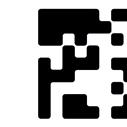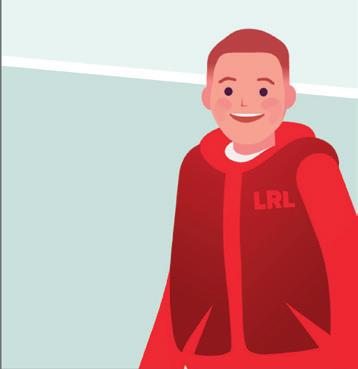How to reduce your risk of sepsis
• Keep up to date with your vaccinations.
• Take antibiotics when prescribed, even if you feel better.
• Keep your hands clean.
• Maintain a healthy weight and lifestyle.
• Follow medical advice recommended for chronic conditions.
• For mothers, aim to breastfeed if possible.
• Follow advice on wound care.
Notes
I have an infection. Could this be sepsis?
Important
If you have an infection and you're not getting better, even if you are taking antibiotics, think sepsis and get urgent medical help. Go to your doctor or Emergency Department
Call 999 or 112 Don’t be afraid to ask “Could this be sepsis?” For further information on sepsis, visit hse.ie/sepsis
This leaflet is available in other languages on healthpromotion.ie
Scan this QR code and search sepsis to view.










What is sepsis?
Sepsis can develop when your body has an extreme reaction to any infection.
It happens when your immune system doesn’t respond to an infection the way it should.
Sepsis is a life-threatening illness that damages organs and kills 1 in 5 people who develop it.
If you have an infection, know the signs of sepsis. It’s important to get treatment early if you need it.
Who is at risk?
Anyone with an infection can be at risk of sepsis, but those most at risk are:
• aged 75 or over
• have certain medical conditions such as cancer, chronic obstructive pulmonary disease (COPD), diabetes, chronic kidney or liver disease
• have a weak immune system, either from illness or medications such as steroids, immunosuppressants, biologics or chemotherapy
• very young children
Look
out
for signs of sepsis
if you have an infection
It can be hard to tell if you have sepsis. If you have a viral or bacterial infection, even if you're on antibiotics or other medicine, look out for the signs and symptoms.
Seek medical help if you’re worried about yourself or someone you’re caring for.
Signs and symptoms in adults (including maternity)
PESSlurred speech, new confusion, too sick to communicate, drowsiness.
Extreme shivering, muscle aches, fever.
Has not passed urine in the last 12 hours and does not feel like passing urine.
SShortness of breath, lips tinged with blue, feels like your heart is racing, dizzy when you sit or stand.
I I feel like I'm going to die.
SSkin mottled and discoloured, new rash that is still visible when pressed on with a clear glass (glass test).
Maternal sepsis
Pregnancy causes changes in your immune system that make you more likely to get infections.
This means that your immune system may not respond as quickly to an infection, particularly viral infections.
These changes last for up to 6 weeks after the pregnancy, even in cases of miscarriage or abortion.
Sepsis in children
If your child has an infection, whether they are taking antibiotics or not, look out for signs and symptoms of sepsis.
Sepsis symptoms can be different in babies and children.
The signs and symptoms of sepsis in children are:
• very fast breathing
• fits or convulsions
• mottled skin (irregular colour) bluish or pale
• a rash that does not fade when you press it
• unusually sleepy and difficult to wake
• unusually cold when you touch them
• has had no pee for more than 12 hours
If the child is under 5 years, watch in particular if they are:
• not feeding
• vomiting repeatedly
• dry when you change them and they have not had a wet nappy for the last 12 hours
Parents and carers know their children bestif you are concerned, seek medical attention immediately.
Sepsis
Awareness

